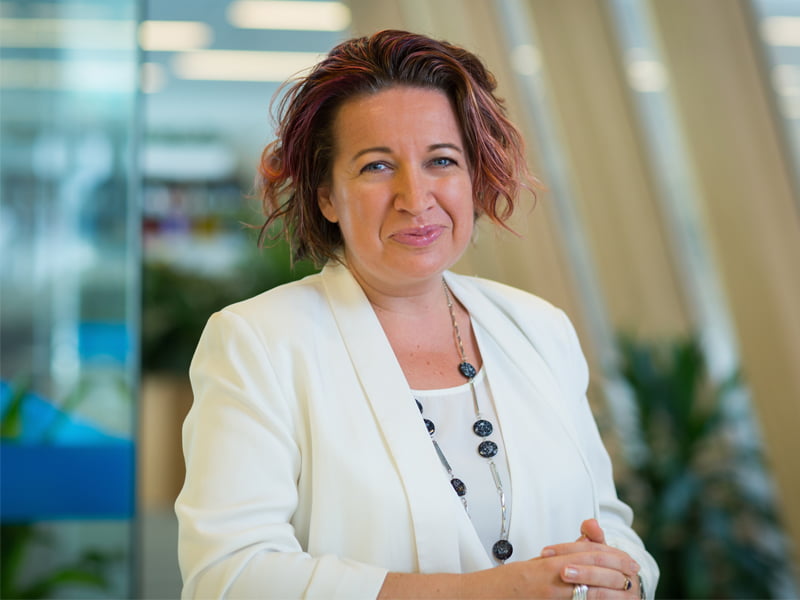Cat Matson, one of Australia’s first city-based Chief Digital Officers recently signed up for a second two-year term – but being based in Brisbane she faces a unique challenge.
A key element of her role is to attract startups to Brisbane and “lead the digital transformation of the Brisbane economy.”
There has been good progress; six months after the City threw open the doors of its $5 million startup hub, The Capital, designed to hold 200 companies, it’s now home to 180 people working in 100 startups.

But in Queensland most startups actually want to stay outside of the capital city, and opt to hang their shingle in smaller, regional centres.
The most recent Startup Muster reveals that while 19.3 per cent of the nation’s startups are based in Queensland just 9.3 per cent of the nation’s city-based startups are in Brisbane. Compared to the other States and Territories, a much higher percentage of Queensland’s startups are outside of the capital city.
That trend seems to be accelerating as the 2015 StartUp Muster showed Queensland hosted 16.5 per cent of the nation’s startups – and 9 per cent of city based entities were in Brisbane. The big push in Queensland remains outside of the city.
Startup Muster CEO Monica Wulff said that a slew of “micro-cities” such as Maroochydore, Townsville, Cairns, Mackay and Gold Coast were attracting startups. She said that often companies found it easier to work with councils, business and academia outside of the big cities to cut through red tape and effect change.
Regional centres also delivered economic benefits. “Why found a startup in a place with a really high cost of living?” she said. It’s a good question – but in NSW a much larger percentage of startups are based in Sydney despite its high cost of living, property and rent.
Queenslanders however prefer to stay away from the big smoke. When the State Government held its recent Myriad event it attracted 127 regional innovators from around the state.
Being outside of the capital certainly hasn’t slowed Townsville’s SafetyCulture. Last October it secured $US23 million of Series B funding from investors including Blackbird Ventures, and Atlassian co founder Scott Farquhar.
SafetyCulture founder and CEO Luke Anear has built a business that has grown from eight people in a Townsville garage in 2013 to over 100 people today, split between Far North Queensland, Sydney, the US and UK. Around 9,000 companies use its products worldwide.
The decision to start the business in the town where he grew up made sense; “We had the NBN here early on so we could talk to customers and team members. And Townsville is a hub with a training hospital, the military, a local university – it’s a diverse economy.”
It also has an airport, so Mr Anear can fly out every week or two, and bring the entire team to Townsville every six months.
Access to global infrastructure such as AWS cloud services also allows SafetyCulture and its clients access to the same systems regardless of location, and even venture capitalists are prepared to look for opportunities outside the big cities, said Mr Anear.
He did however struggle to find experienced staff in Townsville as the company grew – and today Sydney’s team of 65 eclipses the 24 people still in Townsville HQ.
Mr Anear is sanguine about the challenges of growth. “When you start in Townsville you are a big fish in a smaller pond. When you outgrow the pond you’ve got to learn to be a smaller fish in a bigger pond.”
Wherever startups are located Ms Matson believes that Queensland has natural strengths. “In mining and engineering – there is a lot of work being done in that space and that leads into advanced manufacturing.”
She also said that Queensland was developing innovative agribusinesses, tourism services and solutions, and had a strong track record in creative and digital.
But she laments the interstate rivalry to attract businesses to specific locations.
“One of the biggest hurdles we have at the moment is the competition between States and cities – there was an awful headline about SlingShot going to Melbourne – that they ‘won the battle’. We’re focussing on the wrong thing – Australia is too small to be competing among ourselves in this space.”
And, while part of her job is to attract startups to Brisbane – Ms Matson is picky about which startups.
“I’m not a believer that startups are good because startups are good. Startups are good when they provide and build meaningful jobs or meaningful exportable IP.
“We certainly want startups in Brisbane because they offer economic development opportunities here – but we want to see the wider Australian startup ecosystem mature and bring wider value.”
And that extends to infecting other more established parts of the economy with the innovation bug, which is why she says Brisbane chose to locate The Capital in Queen Street Mall.
“We want the entrepreneurial way of doing business to contaminate the wider business ecosystem so we are making it really easy for people from bigger, old style corporates to come and interact with startups.”
It’s a pragmatic approach that extends to Ms Matson’s take on smart cities. Yes, they are enticing – but only if they are developed with proper focus, she says. “It’s not about geekery for geeks’ sake it’s about how will this piece of tech or execution add value to residents or visitors or businesses- or are we just doing it because it’s shiny and exciting?
“A large percentage of the population don’t care about economic development, they don’t care about a smart city – they do care about how long their commute took this morning, whether they can get their kids into a good school, whether their kids are going to learn the right skills for the future.”
A future that may well be outside of Brisbane.
Do you know more? Contact James Riley via Email.

